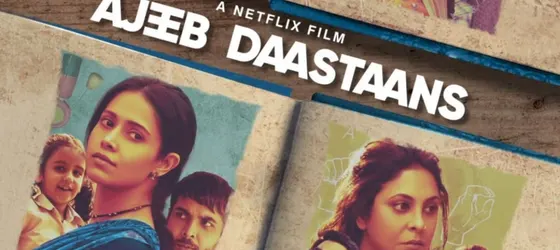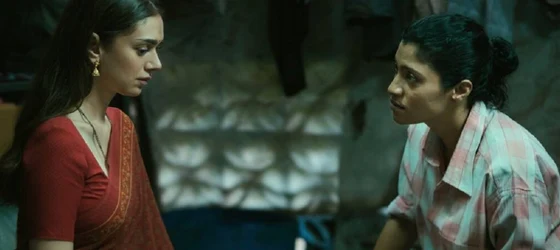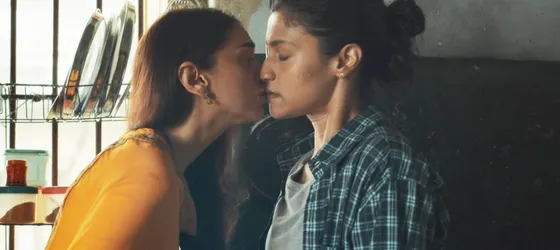
You may not be familiar with the title, but "Geeli Pucchi" is a stunning Indian lesbian film that made its debut on Netflix on April 16, 2021.
Geeli Pucchi is part of a series of short films called Ajeeb Daastaans that focused on Indian women and their love stories, a theme rarely addressed in Bollywood.
Through four short films, topics such as loveless marriage, the class system, the place of women in society, and love between two women are also addressed.
Here are more details about the stories told by these four short films, the third one being the one that will interest us the most.
Majnu is the first short film of this series. It deals with a lot of issues such as loveless marriages, the class system still too present in India, and gay relationships, just to name the most important ones.
The story follows Lipakshi, a young woman stuck in a loveless marriage who seeks comfort from other men.
When Raj Kumar is employed by the couple as a driver, Lipakshi tries to seduce him. Gradually, Raj gives in to her advances, but as the two lovers prepare to run away together, we discovered that Raj was playing a double game all along.

The second short film is called Khilauna.
Meenal and her little sister Binny live in a slum. Meenal works as a domestic helper for a richer family and struggles to keep her sister in school. Sushil is the owner of a laundry and Meenal’s secret lover.
An incident will bring everyone together in an investigation after the baby of the Meenal’s employers disappears.
Directed by Neeraj Ghaywan, Geeli Pucchi is the third short film and probably the best of the series. It is a moving movie following the love story of two women of distinct classes in a predominantly male factory.

Bharti Mandal (Konkona Sen Sharma) is the only female worker in the factory until Priya Sharma (Aditi Rao Hydari) is hired as a data operator.
Bharti feels anger towards this newcomer who has taken the job she wanted and was denied it only because she belongs to the Dalit class.
Eventually, as the two women get to know each other in the factory, they discover each other, but Bharti’s pride forces her to lie and hide her true class from Priya.

As they grow closer and a romance soon develops between them, Bharti finds herself torn between feelings of frustration, anger, helplessness, and vulnerability.
But Bharti decides to come out to Priya about her true class, even though she knows deep down that Priya will find it difficult to accept.
In this story, the two women are as connected by their homosexuality as they are distant by their difference of class.
Finally, the fourth and last short film focuses on disability and loveless marriages again.
Natasha is the mother of a young teenage girl who becomes deaf. Concerned about her daughter’s future, Natasha tries to share her concern with her husband, Rohan, who remains distant, even in denial of the problem, even refusing to learn sign language. After an argument, Natasha takes refuge in a photo gallery where she falls in love with a deaf photographer.
You can watch series Ajeeb Daastaans from which these four short films are extracted on Netflix.
Comments